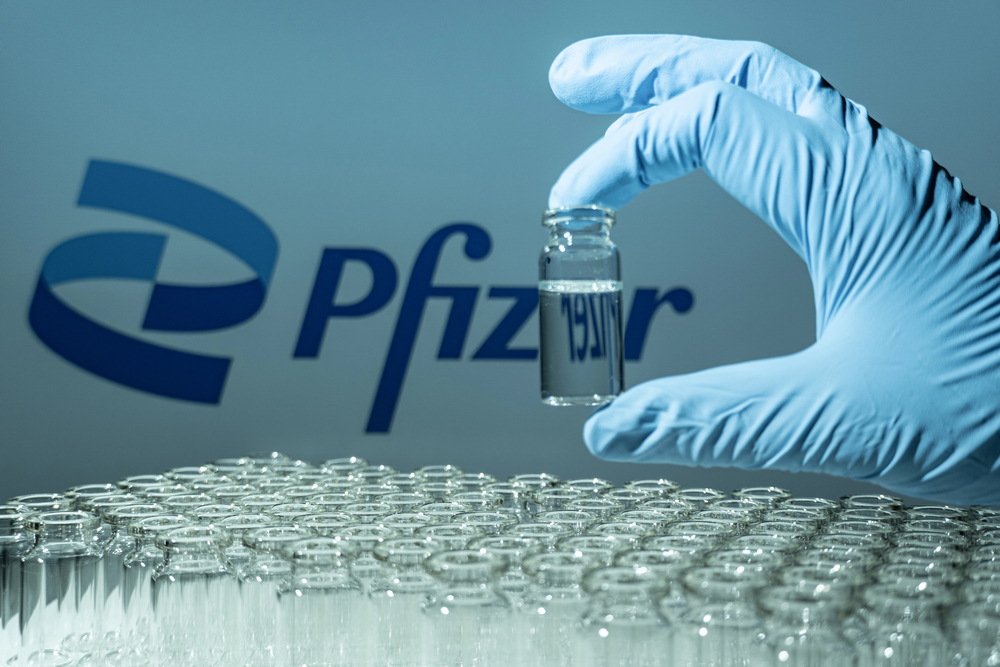Photo credit: depositphotos.com
A group of high school students from Centreville High School in Virginia, in collaboration with the FDA, has uncovered alarming DNA contamination in both Pfizer’s experimental and commercial mRNA COVID-19 shots.
Their peer-reviewed study, published in the Journal of High School Science on December 29th, has sparked renewed debate over vaccine manufacturing standards and quality control processes.
The researchers, led by Tyler Wang, Alex Kim, and Kevin Kim, developed a novel method to detect replication-competent DNA impurities at FDA’s own research facility at the White Oak Campus, Children’s Health Defense reported.
Their technique involves extracting DNA from vaccine samples, ligating it into a circular form, and then transforming it into Escherichia coli cells.
If transformation results in antibiotic-resistant bacterial colonies, it indicates the presence of replication-competent DNA, which should ideally be absent or minimal in the final vaccine product.
The findings were based on analyses of two separate lots of Pfizer’s mRNA vaccines, including monovalent and bivalent formulations.
The students uncovered significant levels of DNA contamination in the vaccines, with some samples exceeding the WHO threshold by up to 470 times, the amount of residual DNA detected ranged between 40 to 110 nanograms per dose.
While no replication-competent DNA was detected in commercial Pfizer vaccine batches, smaller DNA fragments—approximately 35 base pairs in length—were consistently present.
Interestingly, the study reported sporadic instances of replication-competent DNA in an in-house mRNA vaccine and a biosimilar vaccine.
Investigative medical reporter, Maryanne Demasi, Ph.D. first reported:
Kevin McKernan, a former director of the Human Genome Project, described the findings as a “bombshell,” criticising the FDA for its lack of transparency.
“These findings are significant not just for what they reveal but for what they suggest has been concealed from public scrutiny. Why has the FDA kept these data under wraps?” McKernan questioned.
While commending the students’ work, he also noted limitations in the study’s methods, which may have underestimated contamination levels.
“The Qubit analysis can under-detect DNA by up to 70% when enzymes are used during sample preparation,” McKernan explained. “Additionally, the Plasmid Prep kit used in the study does not efficiently capture small DNA fragments, further contributing to underestimation.”
[…]
Nikolai Petrovsky, a Professor of Immunology and director of Vaxine Pty Ltd, described the findings as a “smoking gun.”
“It clearly shows the FDA was aware of these data. Given that these studies were conducted in their own labs under the supervision of their own scientists, it would be hard to argue they were unaware,” he said.
Prof Petrovsky praised the quality of work carried out by the students at the FDA labs.
“The irony is striking,” he remarked. “These students performed essential work that the regulators failed to do. It’s not overly complicated—we shouldn’t have had to rely on students to conduct tests that were the regulators’ responsibility in the first place.”
It can be recalled that in 2023, Florida Surgeon General, Dr. Joseph A. Ladapo, demanded answers from Dr. Robert M. Califf, the Commissioner of the U.S. Food and Drug Administration (FDA), regarding the detection of host cell DNA fragments in mRNA COVID-19 vaccines developed by Pfizer and Moderna.
The Florida Surgeon General sent a letter to FDA Commissioner Califf and CDC Director Mandy Cohen on December 6, pressing for greater transparency about the potential for DNA integration into the human genome—a concern that could have far-reaching implications.
Ladapo raised alarms about potential nucleic acid contaminants in the Pfizer and Moderna COVID-19 mRNA vaccines, particularly those in combination with lipid nanoparticles and the identified Simian Virus 40 (SV40) promoter/enhancer DNA.
“Lipid nanoparticles are an efficient vehicle for delivery of the mRNA in the COVID-19 vaccines into human cells, and may therefore be an equally efficient vehicle for delivering contaminant DNA into human cells. The presence of SV40 promoter/enhancer DNA may also pose a unique and heightened risk of DNA integration into host cells,” wrote in the letter.
The Gateway Pundit reported in 2022 that researchers in Sweden published an alarming study showing that Pfizer’s mRNA Covid vaccine can modify DNA within the human genome.
The study, which was published in the Journal of Clinical Medicine (MDPI), found that the SARS-CoV-2 RNA within the Pfizer vaccine can reverse-transcribe itself and install itself within the DNA of the human genome within a matter of just six hours following exposure to the vaccine.
Aside from the self-explanatory issues of modifying DNA in humans without their knowledge, the changes can cause “genotoxic side effects,” according to the study.
From the study, titled “Intracellular Reverse Transcription of Pfizer BioNTech COVID-19 mRNA Vaccine BNT162b2 In Vitro in Human Liver Cell Line:”
“Our study shows that BNT162b2 can be reverse transcribed to DNA in liver cell line Huh7, and this may give rise to the concern if BNT162b2-derived DNA may be integrated into the host genome and affect the integrity of genomic DNA, which may potentially mediate genotoxic side effects.”
Researchers determined that the mRNA concoction is able to enter the human cell lining at “high efficiency” after observing the phenomenon happen within human liver cells in vitro (a lab setting). They detected “high levels” of the foreign DNA within the liver cell after just a few hours. There were also rapid changes in gene expression within the affected cells.
The post FDA-Led Peer-Reviewed Study by High School Students Uncovers Alarming DNA Contamination in Pfizer’s mRNA COVID-19 Vaccine at FDA’s Own Lab appeared first on The Gateway Pundit.

